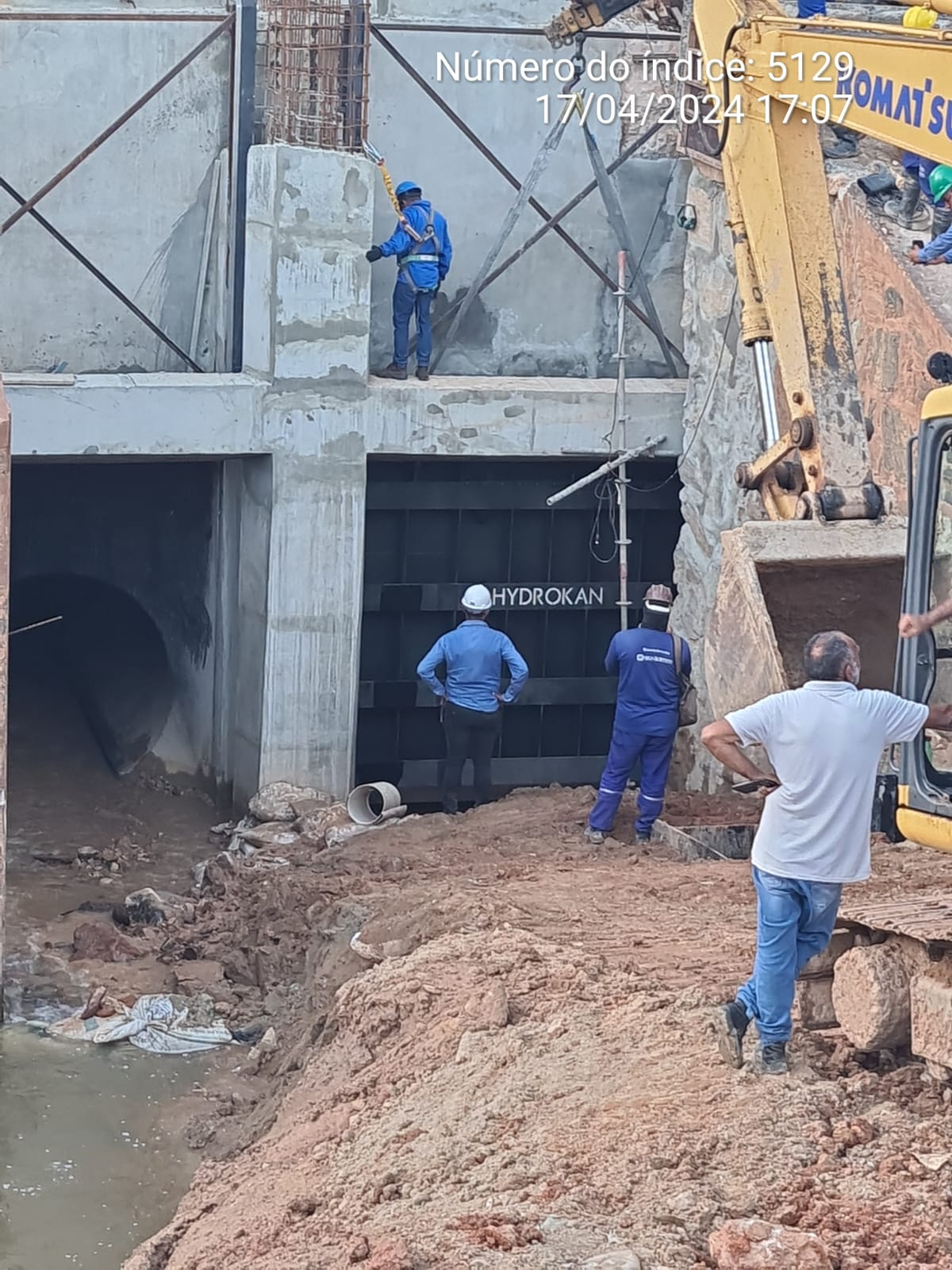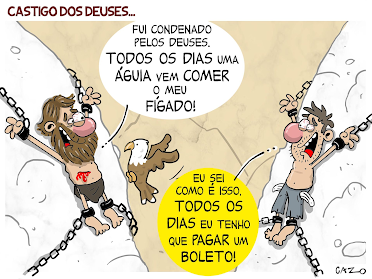Russia has financial and economic buffers for the short-term regarding the present market turbulence. The main macroeconomic problems are structural in nature, and the greatest challenge is geopolitical for the Kremlin and the West. Russia is not a regional power, but a great power in the global arena. Vladimir Putin plays the great power politics card. «We need a significant re-thinking of the Western position with respect to Russia, recognizing its global importance in economic and political spheres and providing a viable alternative to current stand-off in the form of cooperative engagement», says Contantin Gurdgiev.
The Central Bank of Russia (CBR) just jacked up interest key rate from 10.5% to 17% early in the morning of Tuesday December 16th. Just five days after CBR raised key rate from 9.5% to 10.5%. From February, the central bank headed by Governor Elvira Nabiullina hiked the key rate six times by 1150 bp. A move with that dimension is not seen since the 1998 crisis. From May 19th to 27th during the 1998 crisis, CBR raised the key rate by 12000 bp, from 30% to 150%. Despite Tuesday dramatic move, the ruble went down to 97.17 rubles per euro at noon and closed at 85.57, above Monday close. Foreign Exchange reserves lost 95.9 billion US dollars since the end of 2013 until end of last November. New – and different – moves will be needed.
Contantin Gurdgiev [Константин Гурджиев, Konstantin Gurdzhiyev], born in Moscow, is a Russian economist, adjunct professor at Trinity College, Dublin, Ireland, and editor of trueeconomics.blogspot.com/.He advises a number of international clients on Russian economy and financial markets and is the chairman of the Ireland-Russia Business Association.
QUOTES
«Russia is re-asserting its position as a global (as opposed to a regional) player. This is something very close to Russian hearts and minds. And this projection is directly linked to President Putin’s leadership.»
«The sanctions are now destroying small businesses and ordinary Russians, while only marginally touching the power brokers, who are primarily invested in foreign currency and real assets – exactly the opposite of what they were aimed at.»
«Russia has sufficient buffers to withstand current pressures over the next 9-12 months, assuming the current run on the ruble abates, but beyond this horizon the shocks will become harder and harder to offset.»
« To support investment, including investment required to drive up imports substitution in food and agriculture sectors, the CBR should be targeting key rates of around 5 percent.»
« The trick is devising measures that can divert capital outflows toward domestic investment and restrict losses of foreign exchange liquidity that are driven by external debt redemptions. It’s hard to see how this can be achieved absent direct capital controls and caps on corporate and banking debt redemptions.»
«Russian Government should be diverting more and more redemptions to the Asia Pacific funding markets and, simultaneously, developing a mechanism to freeze repayments of maturing debt for companies directly impacted by sanctions.»
« In medium term, Russian economy’s reliance on energy exports is going to be costly in terms of economic growth generation. »
« When it comes to Ukraine, the ball is in Russia’s court – Moscow needs to find a way to extract itself from the conflict.»
«The problem is that the Western perception of Russian position in global economy and politics places Russia into a regional power position, making it subservient to the global players such as the US, EU, NATO and even China.»
« Courtesy, in part, of the Western policies of currency wars and beggar-thy-neighbor quantitative easing, Brazil, South Africa and Russia are either already in a recession or run a hefty risk of heading into one.»
Interview by Jorge Nascimento Rodrigues © Janelanaweb, 2014, December 16th
Photos: courtesy of Ben McCarthy
Note: A first smaller version of this interview was published and edited in Portuguese for the daily paid digital edition of Expresso weekly newspaper.
We are witnessing the end of president Putin’s economic miracle?
It is premature to talk about the political fallout from the economic aspects of the crisis, simply because in Russian politics and history, economics routinely take back stage to geopolitical and internal considerations. President Putin’s power base is anchored across three social domains within Russia: the political domain, the national or cultural domain, and only in the long-term, economic growth. Most of the support base for Kremlin currently arises from the balance of domestic power. President Putin’s ability to control domestic power politics is currently unchallenged, although some pressures are starting to build up in relation to power elites’ attitudes toward Kremlin.
Those elites can have a true political impact?
Those elites cannot, at this point in time, challenge the status quo, simply because any alternative will spell a total disaster for the current elites. Another source of major support base for President Putin is anchored in geopolitical and national revival of the Russian state. After, roughly-speaking, decade-and-a-half of perceived and real humiliations in the global geopolitical arena, Russia is re-asserting its position as a global (as opposed to a regional) player. This is something very close to Russian hearts and minds. And this projection is directly linked to President Putin’s leadership. In the past, throughout the history, Russians have shown nearly unlimited capacity to sacrifice economic well-being for gains in geopolitical and national standing. At this stage, economic downturn and sanctions are simply not sufficient to displace this propensity to see the national position within the global context, rather than within narrowly economic one. Economic fortunes are important, especially in so far as they are linked to the geopolitical fortunes. And as such, economic pains cannot be ignored, but on their own they are still insufficient to present a challenge.
How the Kremlin captured that internal power dynamics?
The above dynamics are only made stronger by two additional factors. Firstly, within Russian political domain there is no viable opposition to the current regime. The alternatives presented from abroad – the West-supported reformers – are largely unpopular and even outright despised in Russia. They might have good ideas, but they have no support base in the country. Even at the peak of protests following the 2012 Presidential elections, there was very little support for the protesters within the mainstream of the Russian society. Russian professional upper-middle class that supported some of the protests is still small in numbers and is more often than not strongly linked, in terms of its fortunes, to the current status quo of power distribution. Secondly, within the younger generations of the Russians, there is a major split between the smaller group of the reforms-focused highly educated younger people, and the larger group of the strong power proponents, less educated and more nationalistically-focused youths.
So, there was a shift in strategy?
Yes, the focus of President Putin’s power base has shifted away from economic achievements toward geopolitical and domestic consolidation of the power base. In a ways that does mean that the ‘miracle’ of the past is no more. But, interestingly, the rhetoric of geopolitical and domestic consolidation is also presenting Kremlin with a new economic alternative – that of economic patriotism and development of domestic import substitutes. Hence, overall, any regime change conversations at this stage can be hypothetical at best and delusional at their worst, as exemplified by the statements of the minority opposition residing abroad. It will take a good part of the current decade for economic sanctions to produce a strong change momentum, not 1-2 years.
Inside the present economic and financial damage which part is self-inflicted due to geopolitics?
Most of the current economic pressure in Russia is arising from two factors unrelated to geopolitics. The first one is the structural slowdown in growth that started in earnest in early 2013 and was already manifesting itself back in late 2011. The second one is the effect of collapsing oil prices. The two are linked – structurally, Russian economy remains too exposed to energy prices fluctuations. Sanctions directly linked to the geopolitical crisis are reinforcing the current economic slowdown, especially via credit and financing channel. But sanctions effects are still secondary outside the area of banks liquidity and capital flight. That said, the immediate crisis, the run on the ruble that we are witnessing in recent days, is certainly linked to the lack of funding for Russian banks and companies precipitated by the last round of sanctions. Any deepening of these, coupled with the Central Bank of Russia interest rates policy, is going to put full stop to domestic investment and credit.
What is the main impact?
That will apply severe pressure on ordinary businesses and consumers. In effect, the sanctions are now destroying small businesses and ordinary Russians, while only marginally touching the power brokers, who are primarily invested in foreign currency and real assets – exactly the opposite of what they were aimed at.
The Russian Economy is marching to stagflation for a prolonged period with growth around 0% and inflation above 10 per cent?
Stagflationary dynamics today are driven by a combination of July counter-sanctions and imports-substitution drive in response to the second round of Western sanctions. The first set of drivers is likely to be priced in fully by the end of 2015, once we have crop data for the next year. After this, inflationary impact of counter-sanctions will fall significantly. The effects of imports substitution, coupled with the effects on domestic prices from falling ruble valuations, will also start tapering off around H2 2015. So, high inflation drivers are temporary. The growth dynamics are much more worrying and structural in nature. Basically, absent a robust recovery in the global growth prospects, we are likely to continue witnessing long term oil prices depression. With it, Russian economy will not only lack liquidity, but will experience long-term credit crunch, impacting adversely domestic investment. Yet, major imports substitution drive undertaken by Moscow in response to the Western sanctions, as well as the desperate need for diversifying sources of economic activity away from extraction sectors, as well as the need for modernizing Russia’s ageing capital base, all require massive uplift in domestic investment. This, not the sanctions themselves, is likely to be the major source of economic stagnation over the longer term.
Russian Economy has buffers against stagflation or even an outright recession and hyperinflation scenario?
Russian Government buffers against sanctions and policy tools that can support the economy through the medium term adverse shocks are significant in size. Russia holds sizeable foreign exchange reserves and is running accelerating current account surpluses. The problem, however, is that the reserves are being depleted at a rapid rate on foreign exchange interventions and on supporting Russian banks and larger corporates during the period of sanctions-induced shutdown from the international funding markets. Given the nature of reserves and the demand for external debt redemptions, Russia has some 18 months of foreign exchange reserves. But the uncertain nature of capital outflows and ruble position vis-a-vis the US dollar and the Euro are putting added pressure on these. Beyond foreign exchange reserves, Russian fiscal position is underpinned by the fact that ruble devaluation supports Federal balance. However, this is a short-term support as it implies continued pressure on the real (FX-adjusted) side of public investment and expenditure, and it weigh heavily on purchasing power of Russian consumers. In addition, devaluation-induced current account correction is also a short-term buffer, since it is driven by rapidly declining imports which, in turn, put pressure on capital investment in the economy and ultimately will lead to lower longer term growth.
Summing-up, what is your forecast?
In short, Russia has sufficient buffers to withstand current pressures over the next 9-12 months, assuming the current run on the ruble abates, but beyond this horizon the shocks will become harder and harder to offset. And, crucially, Russian economy needs firepower to increase domestic investment and deep reforms to make a shift away from oil and gas dependency. All of these require much more conservative use of foreign exchange reserves.
Central Bank of Russia has already changed the key interest rate six times during 2014 up to 17%. How far Governor Elvira Nabiullina can go to revert ruble’s plunge and capital flight?
Central Bank policy to-date has been highly problematic. On the one hand, the CBR aggressive lifting of the benchmark rates has been ineffective in stemming capital outflows and sustaining ruble valuations. Inflation remains on a runaway path, rising to above 9 percent in November and likely to remain at or above 10 percent in 2015. On the other hand, at 17%, current benchmark rate is severely prohibitive when it comes to supporting capital investment and supporting consumer credit. Lending in the economy is currently being held back both by the cost of loans and the shortage of liquidity in the banking sector (a function of the sanctions imposed on Russian banks). To support investment, including investment required to drive up imports substitution in food and agriculture sectors, the CBR should be targeting rates of around 5 percent. However, such rates would imply inflation at around 15 percent in 2015. The CBR, therefore, is in a monetary policy corner: absent capital controls, arresting (or even reducing) the pressures of capital outflows and supporting (even imperfectly) ruble valuations requires interest rates that are inconsistent with the longer-term objectives of the economy. Governor Nabiullina understands this dilemma and she acknowledged it on numerous occasions in recent weeks. The trick is devising measures that can divert capital outflows toward domestic investment and restrict losses of foreign exchange liquidity that are driven by external debt redemptions. It’s hard to see how this can be achieved absent direct capital controls and caps on corporate and banking debt redemptions.
Recently prime-minister Dmitry Medvedev alerted that this huge ruble devaluation is a risk in a “strategic sense.” Against the Euro, the ruble has already devalued more than 102 per cent year-to-date. Central Bank said that the ruble is undervalued by 10-20 per cent. What can be done to halt ruble crash?
Higher interest rates and marginal interventions in the markets for Ruble are not being effective in combatting devaluation. In principle, aside from the alleged speculative attacks on the currency, Russian Ruble dynamics are reflective of the current oil price dynamics and capital outflows trends. In this environment, nothing short of outright capital controls can decouple ruble valuations from oil prices. The key to Ruble valuations is oil. If oil prices return to USD80 pbb levels in H1 2015, Russian authorities will be able to sit-out the crisis without imposing severe capital controls. If, oil prices remain at or below USD60-65 pbb in the longer term, capital controls will be unavoidable. In current conditions, Russian Government should be focusing on conserving foreign exchange reserves and devising the means for reducing the demand for external debt redemptions on banks and corporates. The latter can only be achieved by diverting more and more redemptions to the Asia Pacific funding markets and, simultaneously, developing a mechanism to freeze repayments of maturing debt for companies directly impacted by sanctions. In other words, the Ruble dilemma is the same one as with the broader monetary policy.
What is your forecast for next year?
Over the course of 2015, we can expect capital investment markets within Russia to come to a grinding halt and the economy to hit the brick wall when capital depreciation will start outpacing replacement rates. Technological modernization is already experiencing an abrupt stop and imports of required spare parts and tools are starting to shrink dramatically.
OPEC price war, and particularly the Gulf exporters’ strategy leaded by the Saudis, is targeting Russia?
I do not subscribe to the school of thought that the current oil price collapse is driven by ant-Russian conspiracy within the OPEC. We are clearly witnessing a rapid deceleration in global demand for oil, driven primarily by the dramatic slowdown in China and Brazil as well as by the overall pressures on growth across the emerging markets and continued stagnation in a number of major advanced economies. We are also witnessing the effects of the recent developments in the North American shale production. The supply side of the oil markets today is growing at 3 times the rate the demand side and this drives oil prices.
So, Saudis’ strategy is logical due the market conditions?
Saudis are facing a choice: push for higher prices and risk losing market share (as happened in the 1970s-1980s) or push for sustained market share and lose on margins. Yes, hurting the interests of Iran and, to a lesser extent, Russia is something that the Saudis can welcome, geopolitically, given their position on Syria. But the fact that they are opting for the policy of preserving their market share is logical and rational – their defense comes at the expense of core rivals: Iran, Brazil, Venezuela and Russia. And core OPEC countries can sustain short-term oil prices at USD50 bbl, so we have some room to the downside still left. Russian response to this has been correct and pro-active: Moscow is shifting oil and gas supply contracts East and South, toward core centres for future economic growth. Unfortunately, this policy will take years to bear fruit and in the mean time, oil price pressures are very acute and real. The pipeline looks also constrained for natural gas. Competition from the North American LNG and North African supply lines, coupled with new discoveries in the Eastern Mediterranean, are pressuring Russian gas plays in Europe. Transport and transit costs are rising and margins are falling. Turkmenistan and Kazakhstan are presenting a challenge in the East. So in medium term, Russian economy’s reliance on energy exports is going to be costly in terms of economic growth generation.
THE GEOPOLTICAL CHALLENGES
Do you expect new moves in the geopolitical arena from the Kremlin in 2015, regarding the building of a buffer zone, or a standby cold war particularly in Europe will consolidate?
Russia is currently engaged in three geopolitical confrontations, of which one, the crisis in Ukraine, represents a major flashpoint for risk and uncertainty. Russia will need to change dramatically the role it plays in Ukraine and such a change will be harder to implement than any other shift in its geopolitical strategy. Let’s be blunt. Russian position in Eastern Ukraine is not conducive to peaceful resolution of the crisis, to restoration of Ukrainian territorial integrity and to the recovery of the Ukrainian state and economy. This will have to change in order to defuse the crisis and I suspect we will see some significant moves by Russia away from the conflict in 2015. We are already witnessing the change in Russian rhetoric on the issue of federalization of Ukraine.
Are you 100 per cent sure?
Predicting such a turn of events is hazardous, so I must condition it on several external factors playing out before and during such a shift. There is a need for Western facilitation of such a move – so far we have lots of sticks flying around and no carrots. There is also a need for Russia to stand down from accelerating pressures on Baltic and vis-a-vis NATO. Optimally, this can be initiated via a constructive dialogue between NATO and Russia. But, when it comes to Ukraine, the ball is in Russia’s court – Moscow needs to find a way to extract itself from the conflict. There is some understanding of this, especially following the latest elections that overwhelmingly supported the current Kiev government and the direction toward reforms that President Poroshenko has chosen.
And regarding EU and the US?
The second front for geopolitical pressures is the Russia-EU relations. This is linked, of course, to the Ukrainian situation, but the problems here run deeper and longer than the crisis in East Ukraine. Again, the fist step here would require Russia moving toward normalizing its strategy on Ukraine and reducing the risks relating to the Baltics. Thereafter, with immediate pressure gone, it will be a long-term game to repair cooperative relations. Due to the EU internal problems – stagnant economy and divergent geopolitical strategies advocated by various member states – we might see more positive progress on this in late 2015. Lastly, Russia-US positions are likely to become even more contentious in 2015, as the US is moving closer to the Presidential Elections and as the White House desperately seeks to reposition itself vis-a-vis the intransigent and hawkish Congress. From a rational policy perspective, 2015 is unlikely to see a major acceleration in Russian geopolitical brinkmanship. However, as the events of 2014 illustrate, rational policy perspectives can quickly turn into reactionary policy choices and longer-term strategies can be held hostage to short-term events.
The idea of a “common European house” failed and the presence of Russia in the G8 group of developed economies is lost for the coming years?
The greatest winner of the 2014 geopolitical crisis in Eastern Europe has been China. And the greatest loser has been the idea of the ‘common European space’. This is truly tragic. Europe needs Russia as a strong, independent, but cooperative partner. Russia needs Europe as an investment and trade partner. And the world at large needs Russia to constructively engage in global geopolitical and economic spheres. Thus, loss of Russia from G7+1 group, as well as decline of Russian cooperation with NATO and the shutting off of Russian economic links to Europe, are all net negatives not only for Russia, but also for Europe and even the US. The problem is that the Western perception of Russian position in global economy and politics places Russia into a regional power position, making it subservient to the global players such as the US, EU, NATO and even China. Such a worldview prevailed over the 1990s and 2000s despite all the rhetoric to the contrary coming out of Berlin, Brussels and Washington. And this worldview will have to change. The sooner this happens, the sooner we can move back away from the brinksmanship and toward cooperation. And the sooner we will be able to renew our dreams of a ‘common European space’.
BRICS group and the growing political relevance of the G20 are enough for Kremlin to counterweight geopolitical and geo-economic losses?
Politics of the G20, evident at the last summit in Brisbane (Australia), currently act to polarize geopolitical standoff between the advanced economies and the emerging and developing economies. While in the past, Russia acted as a bridge between the Western G7 positions and the rest of G20 interests, today, Moscow is no longer able to facilitate this dialogue. As the result, G20 summits became dysfunctional, bickering-filled venues where fractions of member states are running own agendas. Even the BRICS axis to G20 became less cooperative with the West and more confrontational. One has to recognize a simple economic reality here. By 2020, four out of eight largest economies in terms of trade and GDP will be the BRIC countries. Over 40 percent of the total G20 economic output will be accounted for by non-Western economies, up from 34 percent today. Absent real cooperation and engagement from Russia, this transition is unlikely to be cooperative and can entail serious geopolitical risks and disruption. Courtesy, in part, of the Western policies of currency wars and beggar-thy-neighbor quantitative easing, Brazil, South Africa and Russia are either already in a recession or run a hefty risk of heading into one. China is losing steam and while India is experiencing a robust recovery, growth remains too dependent on monetary easing. Cooperative will of the BRICS vis-a-vis the West is declining, while internal cohesion of the BRICS within G20 remains robust, especially post-Brisbane meeting.
What Europe must do?
In summary, we, in Europe, need to see Russia as a fully cooperative and engaged member of the international community, a long-term partner rather than an adversary. The best way to achieve this is, first and foremost, by pushing more actively for a peaceful resolution of the crisis in Eastern Ukraine, fully respecting the territorial integrity and the right to self-determination of the Ukrainian people. Secondly, we need a significant re-thinking of the Western position with respect to Russia, recognizing its global importance in economic and political spheres and providing a viable alternative to current stand-off in the form of cooperative engagement. Russia itself must play a cooperative role. The current standoff is not sustainable in the longer run – neither for Russia, nor for Vladimir Putin, nor for the West.

![The Drum Drum Show escrita por HeyBae00 [Livre]](http://static.fanfiction.com.br/userfiles/D/3/D/5/capa_850994_1713813037.jpg)














